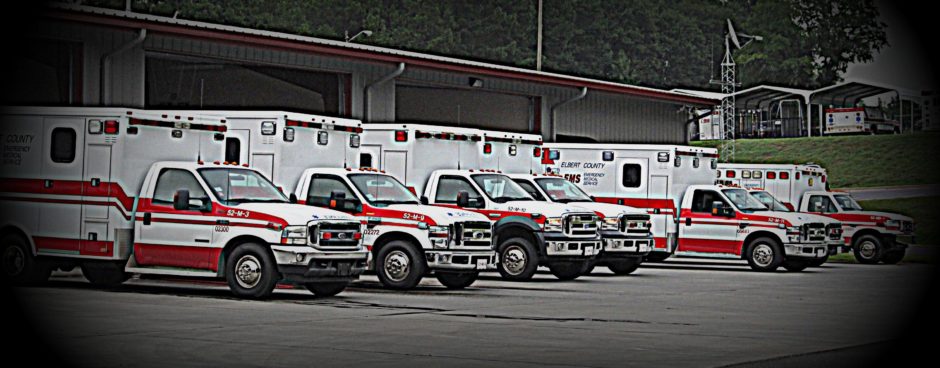NEWS RELEASE
Severe Weather Awareness Week Begins Feb. 3 with ‘Family Preparedness/NOAA Weather Radio Day’
The Elbert County Emergency Management Agency (EMA) supports the Georgia Emergency Management Agency/Homeland Security (GEMA) and the National Weather Service in observingFebruary 3 to 7, 2014, as Severe Weather Awareness Week. This is an excellent time for families to learn emergency preparedness and response procedures for all types of severe weather. A different topic will be highlighted each day:
February 3 Monday Family Preparedness/NOAA Weather Radio Day
February 4 Tuesday Thunderstorm Safety
February 5 Wednesday Tornado Safety (Statewide Tornado Drill)
February 6 Thursday Lightning Safety
February 7 Friday Flooding (Alternate Drill Day)
“Family Preparedness Day is a time for every family to plan and rehearse what they should do during the first 72 hours of any severe weather-related event or disaster,” says Elbert County EMA Director Chuck Almond. “It’s also important to pay attention to your local forecast and be sure you have a way to receive weather alerts, even if you are asleep. Elbert County provides CodeRed Mass Emergency Notification. In addition, we recommend National Oceanic and Atmospheric Administration (NOAA) Weather Radio as standard operating equipment in every home.”
NOAA Weather Radio is a nationwide network of radio stations dedicated to broadcasting continuous weather information directly from a nearby National Weather Service office. It is the best way to hear watches and warning from the National Weather Service (NWS), even if they are issued in the middle of the night.
To help families get started preparing for emergencies, Ready Georgia, a statewide emergency preparedness campaign established by GEMA offers the tools needed to make an emergency supply kit, develop a communications plan and stay informed about potential threats. Visitors to Ready Georgia’s website, www.ready.ga.gov, can create an online profile to receive a tailored plan for the entire family that includes the specific amount of supplies to put in their household Ready kits. They can also find local emergency contact information, learn about Georgia-specific disasters and read preparedness testimonials from local sports stars. Employers can use the Ready Your Business guide to create custom contingency plans and children can visit the ReadyKids page for age-appropriate information, videos and games. For preparedness on the go, families can also download Ready Georgia’s free mobile app to learn how to prepare for emergencies, create family communications plans and more.
During winter storms, floods, tornadoes or hurricanes, it may take emergency workers at least three days to reach certain areas in order to open roadways and restore utilities. The benefit of being self-sufficient for at least three days is that your family can survive circumstances that might otherwise be tragic, if you were not prepared. “With a little time and effort, families can prepare for severe weather hazards affecting our area. Developing a family disaster plan is the first step,” says Director Chuck Almond. Severe weather or a disaster may force an evacuation of your neighborhood or confine you to your home. What will you do if your basic utilities – water, gas, electricity, or telephones — are cut off? These are the types of questions your family disaster plan must address in order to help protect your family.
Follow these basic steps to develop a family disaster plan:
Gather information about hazards
In addition to your local EMA, you may contact the nearest National Weather Service office or Ready Georgia. Find out what type of disasters could occur and how you should respond. Learn the community’s warning signals and evacuation plans.
Meet with your family to create a plan
Discuss the information you have gathered. Pick two places to meet: a spot very near your home for an emergency, such as fire, and a place away from your neighborhood in case you cannot return home. Choose an out-of-state friend as your “family check-in contact” for everyone to call if the family gets separated. Discuss what you would do if advised to evacuate.
Implement your plan
- Post emergency telephone numbers by phones.
- Install safety features in your house, such as a NOAA Weather Radio, smoke detectors and fire extinguishers.
- Inspect your home for potential hazards: such as items that can move, fall, break or catch fire; and, correct them.
- Have family members learn basic safety measures: such as CPR and first-aid; how to use a fire extinguisher; and, how and when to turn off water, gas and electricity in your home.
- Teach children how and when to call 9-1-1 or your local Emergency Medical Services number.
- Keep enough supplies in your home to meet your family’s needs for at least three days.
- Assemble an emergency preparedness kit with items you may need in case of an evacuation.
Practice and maintain your plan
Ask questions to make sure your family remembers meeting places, phone numbers, and safety rules. Conduct drills. Test your weather radio and smoke detectors monthly and change the batteries at least once a year. Test and recharge your fire extinguishers according to the manufacturer’s instructions. Replace stored water and food every six months.
For more information, contact Elbert County EMA at 706-283-2003 or visit these websites: www.ready.ga.gov, www.erh.noaa.gov/gsp/ or www.gema.ga.gov.
About Ready Georgia
Ready Georgia is a statewide campaign designed to educate and empower Georgians to prepare for and respond to natural disasters, pandemic outbreaks, potential terrorist attacks and other large-scale emergencies. The campaign is a project of the Georgia Emergency Management Agency (GEMA) and provides a local dimension to Ready America, a broader national campaign. Ready Georgia aims to prepare citizens for maintaining self-sufficiency for at least 72 hours following an emergency, and uses an interactive website, free mobile app, online community toolkit, broadcast and print advertising and public awareness media messaging to reach its audiences. Ready Georgia is also on Facebook and YouTube.
